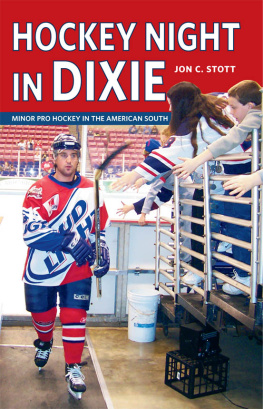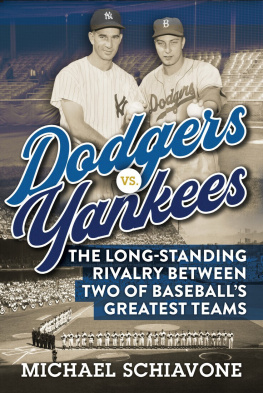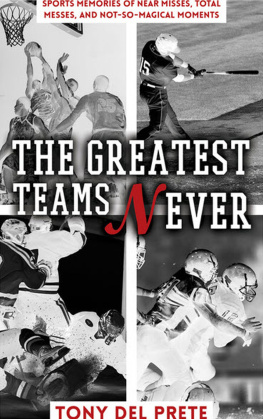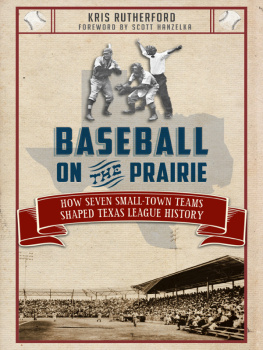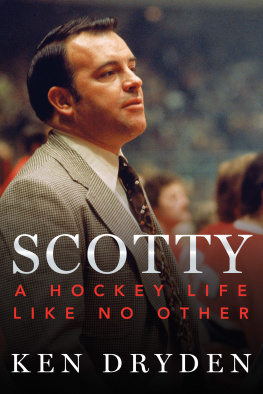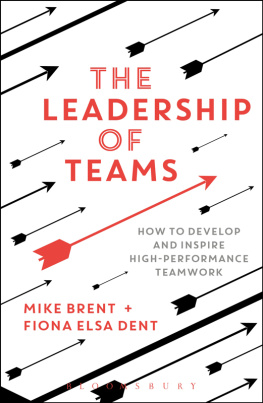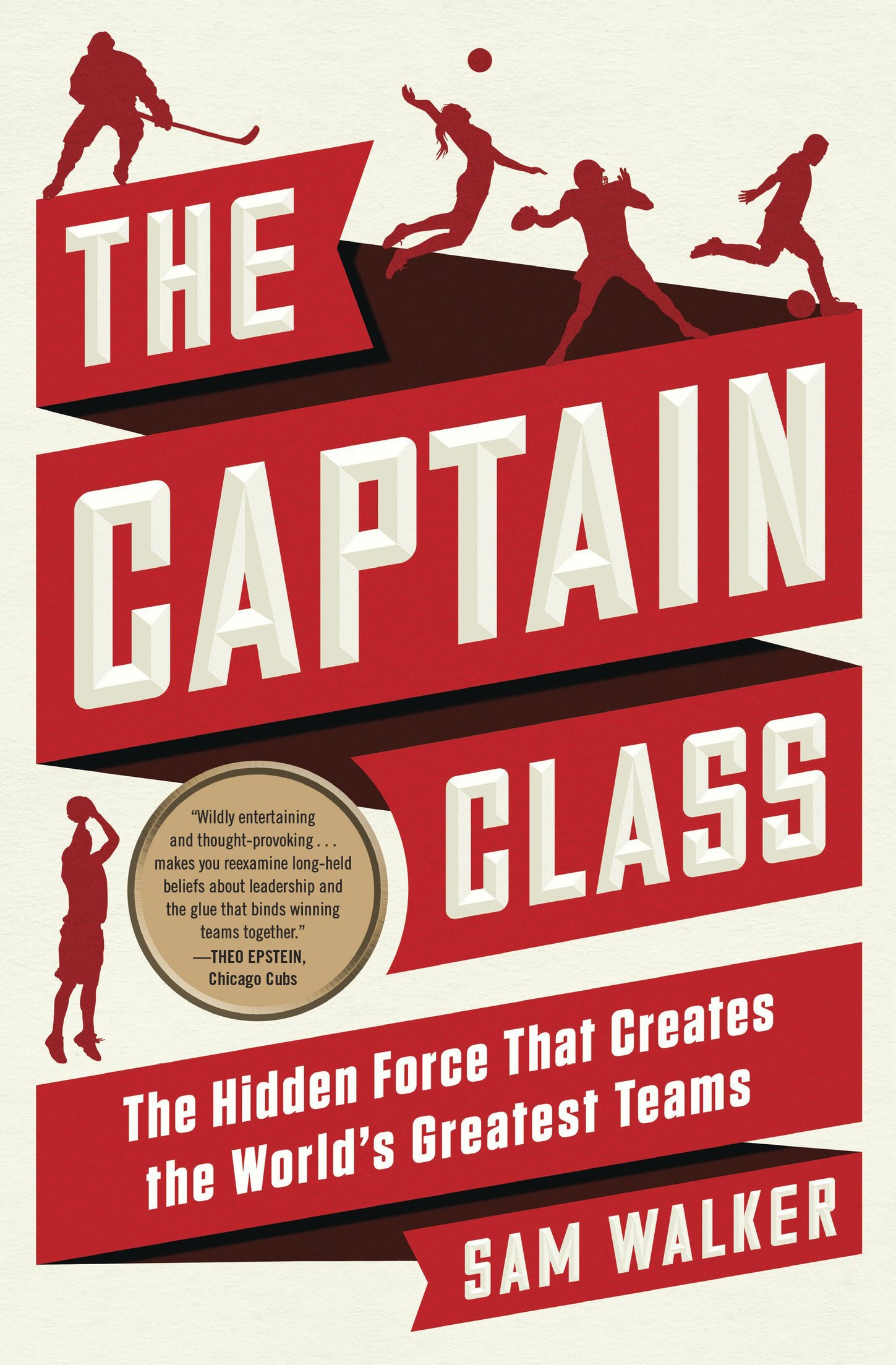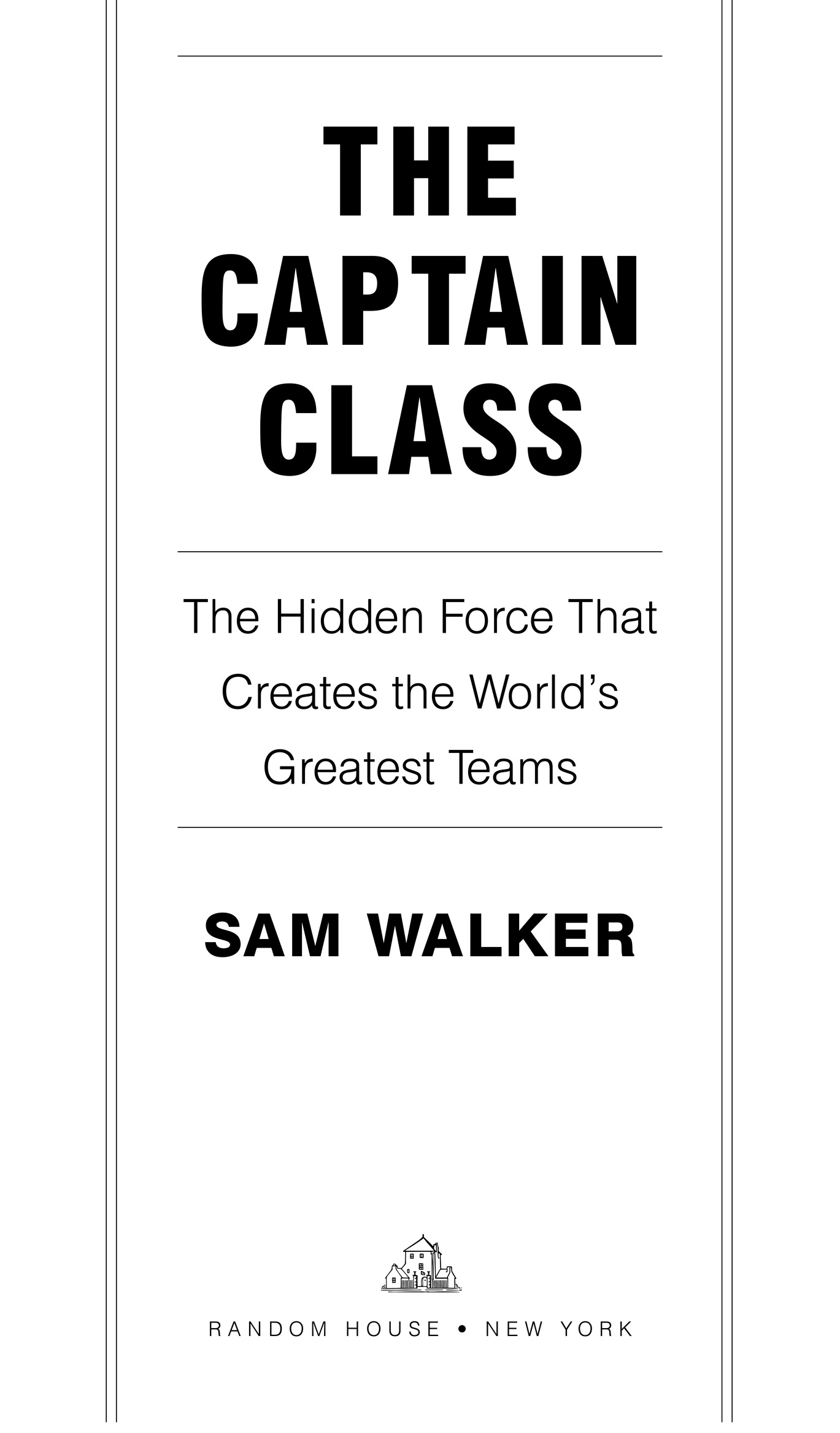Sam Walker - The Captain Class: The Hidden Force That Creates the World’s Greatest Teams
Here you can read online Sam Walker - The Captain Class: The Hidden Force That Creates the World’s Greatest Teams full text of the book (entire story) in english for free. Download pdf and epub, get meaning, cover and reviews about this ebook. year: 2017, publisher: Random House, genre: Detective and thriller. Description of the work, (preface) as well as reviews are available. Best literature library LitArk.com created for fans of good reading and offers a wide selection of genres:
Romance novel
Science fiction
Adventure
Detective
Science
History
Home and family
Prose
Art
Politics
Computer
Non-fiction
Religion
Business
Children
Humor
Choose a favorite category and find really read worthwhile books. Enjoy immersion in the world of imagination, feel the emotions of the characters or learn something new for yourself, make an fascinating discovery.

- Book:The Captain Class: The Hidden Force That Creates the World’s Greatest Teams
- Author:
- Publisher:Random House
- Genre:
- Year:2017
- Rating:3 / 5
- Favourites:Add to favourites
- Your mark:
The Captain Class: The Hidden Force That Creates the World’s Greatest Teams: summary, description and annotation
We offer to read an annotation, description, summary or preface (depends on what the author of the book "The Captain Class: The Hidden Force That Creates the World’s Greatest Teams" wrote himself). If you haven't found the necessary information about the book — write in the comments, we will try to find it.
The secret to winning is not what you think it is.
Its not the coach. Its not the star.
Its not money. Its not a strategy.
Its something else entirely.
Several years ago, Sam Walker set out to answer one of the most hotly debated questions in sports: What are the greatest teams of all time? He devised a formula, then applied it to thousands of teams from leagues all over the world, from the NBA to the English Premier League to Olympic field hockey. When he was done, he had a list of the sixteen most dominant teams in history. At that point, he became obsessed with another, more complicated question: What did these freak teams have in common?
As Walker dug into their stories, a pattern emerged: Each team had the same type of captaina singular leader with an unconventional skill set who drove it to achieve sustained, historic greatness.
Fueled by a lifetime of sports spectating, twenty years of reporting, and a decade of painstaking research, The Captain Class tells the surprising story of what makes teams exceptional. Drawing on original interviews with athletes from two dozen countries, as well as general managers, coaches, executives, and others skilled at building teams, Walker identifies the seven core qualities of this Captain Classfrom extreme doggedness and emotional control to a knack for nonverbal communication to tactical aggression and the courage to stand apart.
Told through riveting accounts of some of the most pressure-soaked moments in sports historyfrom Bill Russells legendary Coleman Play in the 1957 NBA Finals to Barcelonas Figo Game against Real Madrid in 2000The Captain Class doesnt just bring these events to life; it presents a fresh, counterintuitive take on leadership that can be applied to a wide spectrum of competitive disciplines.
The men and women who make up the Captain Class were never the most skilled athletes, nor were they gifted orators or paragons of sportsmanship. They were often role players who were allergic to the spotlight. In short, the seven attributes they shared challenge your assumptions of what inspired leadership looks like.
Advance praise for The Captain Class
Well-researched, wildly entertaining, and thought-provoking. In The Captain Class, Sam Walker presents compelling narratives about the secret ingredient to the greatest teams of all timeand quickly makes you reexamine long-held beliefs about leadership and the glue that binds winning teams together.Theo Epstein, President of Baseball Operations for the Chicago Cubs
In The Captain Class, Sam Walker gives us important and original insights into the mysterious ingredients of transformative leadership. A stunning mix of research and narrative.Susan Cain, bestselling author of Quiet
If you care about leadership, talent development, or the art of competition, you need to read this immediately.Daniel Coyle, bestselling author of The Talent Code
The Captain Class is a brilliant hybrid: one-part detective story and one-part leadership book, set in the world of sports, and dedicated to a fascinating mystery: What sets apart the greatest teams of all time? Im not even a sports nut and I couldnt put it down.Dan Heath, co-author of the New York Times bestseller Made to Stick
Sam Walker: author's other books
Who wrote The Captain Class: The Hidden Force That Creates the World’s Greatest Teams? Find out the surname, the name of the author of the book and a list of all author's works by series.


